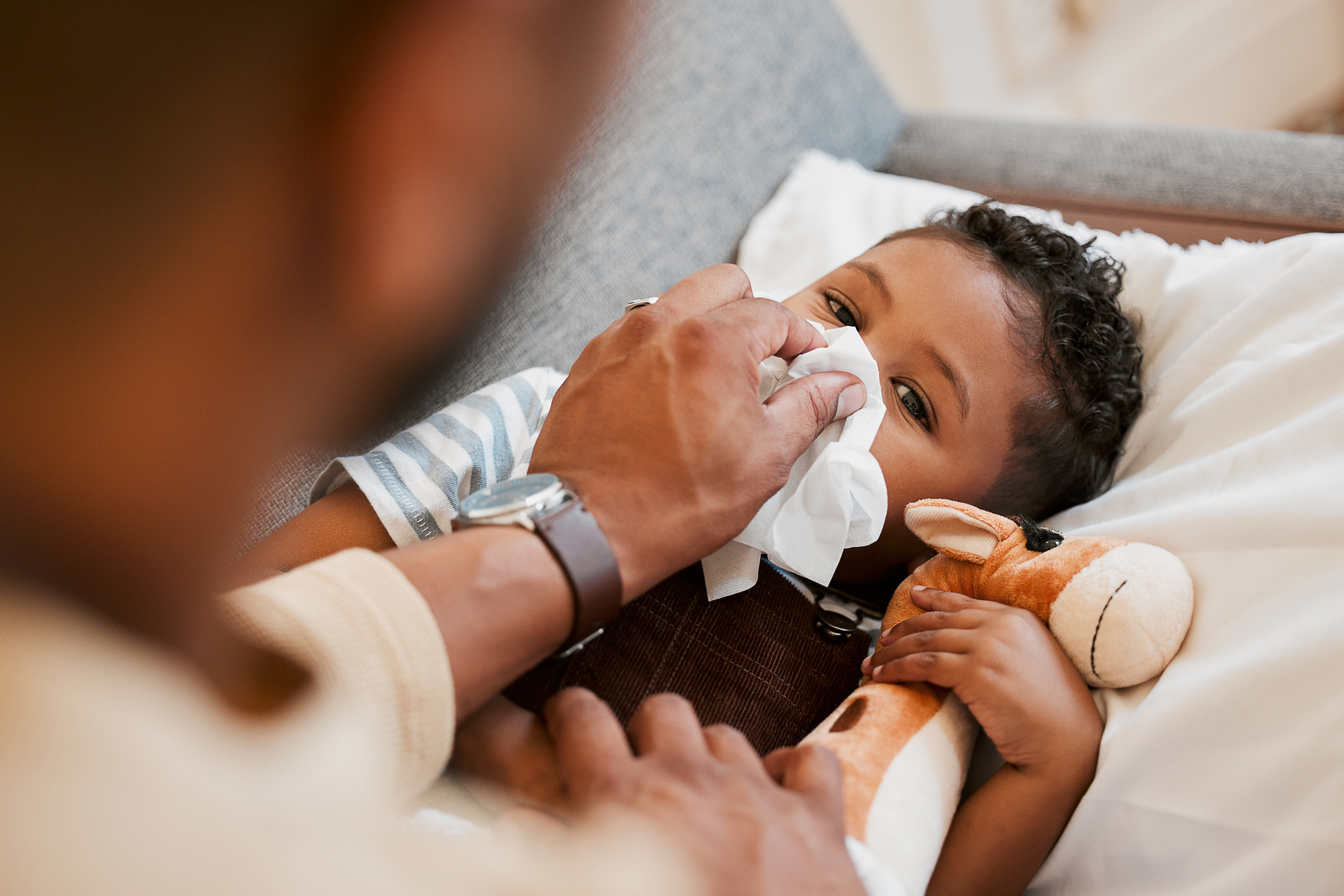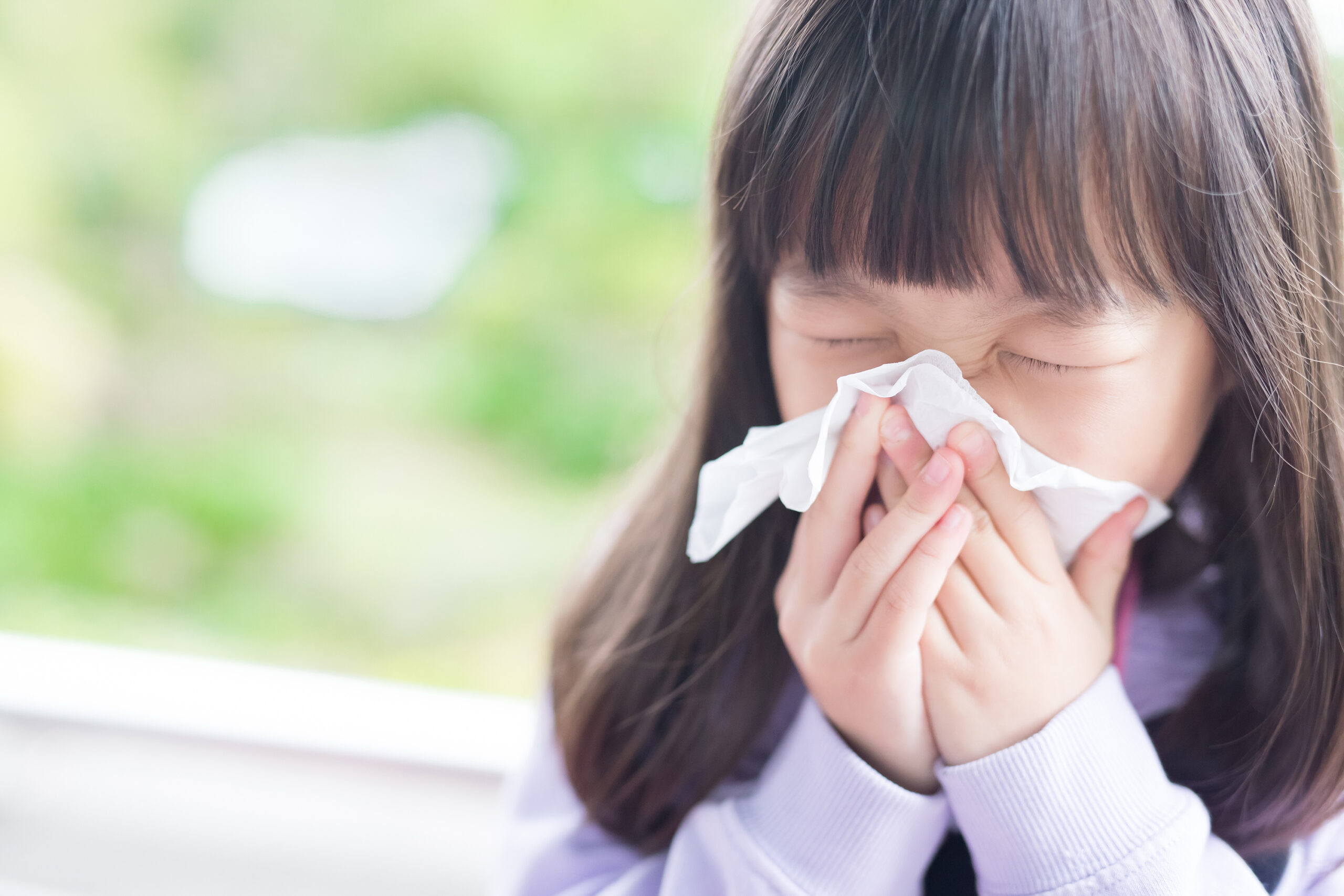

Fall is a favorite season for many, because it brings so many wonderful family activities: apple picking, pumpkin carving, leaf peeping, Trick-or-Treating, Thanksgiving festivities, and so much more. Unfortunately, fall also brings about the start of cold and flu season, which means sniffles, runny noses, fevers, and worse. Flu cases typically pick up in October and peak in December, January, and February. Before we get too bogged down in tissues and chicken soup, it’s important to know exactly how to prepare for cold and flu season.
We spoke to Katie E. Golden, MD, a board-certified emergency medicine physician and medical editor at GoodRx, to learn more about cold and flu season; here’s what she had to say.

Cold & flu season can be brutal for parents and kids — what should parents do to be proactive about their children's healthcare?
Parents should be prepared for a cold and flu season that includes RSV and COVID as well, something known as the tripledemic.
The most important thing parents can do to keep their kids and communities healthy is to get vaccinated. This year, any child six months and older should get the COVID-19 and flu shot as soon as possible.
Most kids do not need the RSV vaccine. But there are some exceptions. Babies younger than 8-months may need the RSV vaccine if their mother was not vaccinated at least 14 days before they were born. And other children over 8 months (and up to 19 months) may need it if they are at increased risk for severe RSV. A child’s pediatrician can help their parents know if they should get the RSV vaccine.
It’s also never too early to teach kids healthy habits that can prevent them from getting sick — like proper handwashing and hygiene. Young kids need to be reminded not to touch their face, and to cover their mouth when they cough. It’s also not a bad idea for families to wear masks if they will be in an enclosed space for a long time, like when traveling around the holidays.
What do we know about this year's flu strain and shot?
It’s still too early to say how severe this flu season will be. But experts are confident that this year’s vaccines will offer protection against this year’s strain. Vaccines this year will protect against four different flu viruses, providing broad protection. It takes about two weeks after vaccination to be fully protected against the flu, so it’s important to get vaccinated as soon as possible. If a child is between 6 months and 8 years old and hasn’t had a flu shot before, they will need two doses at least 4 weeks apart to be fully protected.
Medications and vaccines can be expensive, how can parents save money this cold & flu season?
At GoodRx, we never want the cost to get in the way of someone taking care of themselves and their kids this cold and flu season. GoodRx’s partnerships with Walgreens, Walmart, and Weis make sure even those without insurance have access to a flu vaccine for a flat fee.
And if somebody does get sick, GoodRx offers savings on medications and antivirals. For example, you can get a z-pak for as low as $8.05 or generic Tamiflu for as low as $20.82 using GoodRx.
GoodRx can help parents find the best prices on everything they need this cold and flu season — from prescriptions, to the flu vaccine, to other helpful information — all in one central location.
How can parents keep their families healthy if one person gets sick?
It seems like any time one person gets sick, the entire household gets it too. But that doesn’t have to be the case. During cold and flu season, families should avoid sharing drinks and food. They should also practice frequent handwashing, and wipe down high-touch areas with sanitizing wipes.
When a child gets sick, they will likely need a little TLC from their caregivers. And parents can still give them all the love they need while keeping the rest of the household healthy. It can be helpful to designate a sick space — like a couch or bed to rest and watch movies. Parents can also consider wearing a mask while caring for any sick kiddos.
Are there products parents should keep in their medicine cabinets to combat colds and the flu?
I recommend always having a fever and pain reducer formulated for children (like Children’s Tylenol) in the medicine cabinet. An electrolyte replacer (in a yummy flavor that kids will actually drink) can also help with any dehydration. A humidifier can also be handy too. Running it at night in the child’s room can help with sore throats and congestion.
How can parents stay informed this cold & flu season?
Cold and flu season can be overwhelming especially when facing a season with COVID and RSV as well. GoodRx Health is a trusted online resource written by doctors, pharmacists and healthcare experts and includes articles to help parents keep their family healthy and understand illnesses, vaccines and prescriptions.
Cold and flu season can be stressful for families, but with the right preparation and the help of GoodRx, parents can feel confident they know just how to handle it this year.



